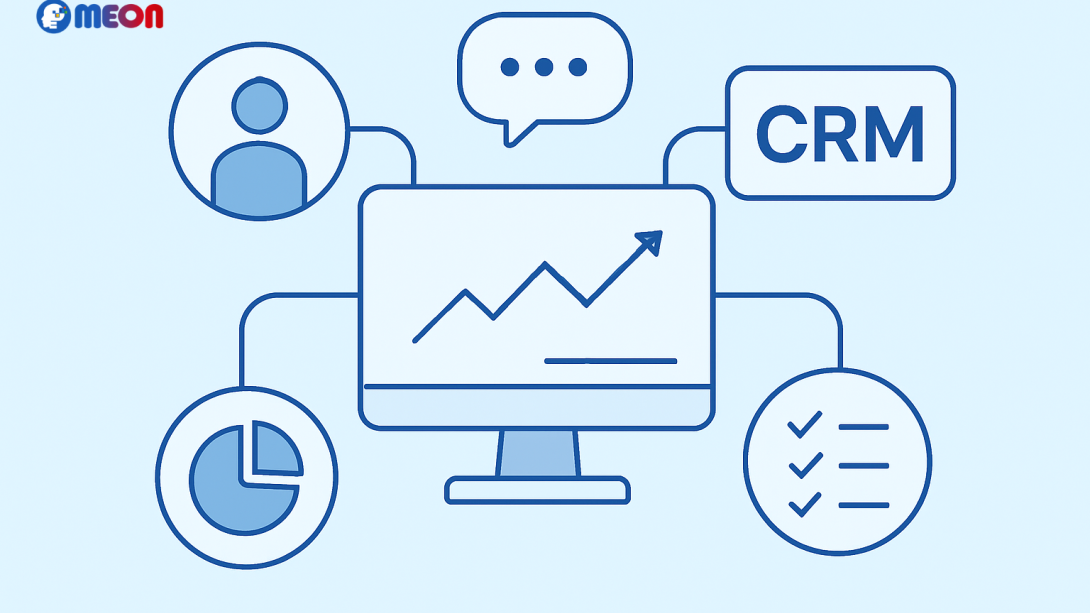How CRM Software Transforms Sales and Marketing Success

In today’s highly competitive business environment, sales and marketing teams need more than just traditional tools to stay ahead. Customers expect personalised experiences, faster responses, and meaningful engagement at every stage of their journey. This is where CRM software for sales and marketing plays a critical role. It not only centralises customer information but also helps businesses automate processes, track leads, and design personalised campaigns that convert.
What is CRM Software for Sales and Marketing?
Customer Relationship Management (CRM) software is a platform designed to store, analyze, and manage customer interactions. While it benefits many departments, its true power shines in sales and marketing.
- For sales, CRM software provides tools to manage leads, track deals, and forecast revenue.
- For marketing, it enables better campaign management, audience segmentation, and performance analysis.
When both teams use the same system, they can collaborate seamlessly to drive growth and deliver consistent customer experiences.
Benefits of CRM Software for Sales
1. Lead Management and Tracking
CRM software ensures that every lead is captured, tracked, and nurtured. Sales representatives can see where a lead stands in the pipeline and take the right steps to move them closer to conversion.
2. Sales Pipeline Visibility
A clear overview of the pipeline helps sales managers monitor progress, identify bottlenecks, and make informed decisions to improve performance.
3. Automation of Repetitive Tasks
CRM tools can automate routine activities such as follow-up reminders, email responses, and scheduling, allowing sales teams to focus more on closing deals.
4. Accurate Sales Forecasting
With real-time analytics and historical data, businesses can predict sales outcomes more accurately, improving financial planning and resource allocation.
Benefits of CRM Software for Marketing
1. Audience Segmentation
CRM enables marketers to divide their audience into segments based on demographics, purchase behavior, or engagement level. This makes it easier to deliver targeted campaigns that resonate.
2. Personalized Marketing Campaigns
By leveraging customer data, marketers can design personalized email campaigns, social media ads, and offers that drive engagement and conversions.
3. Campaign Tracking and Analysis
CRM software provides insights into campaign performance, showing what works and what doesn’t. This helps marketers refine their strategies for better ROI.
4. Marketing and Sales Alignment
One of the biggest challenges in business is the gap between sales and marketing teams. A CRM system bridges this gap by giving both teams access to the same customer data, ensuring consistency in messaging and approach.
Key Features of CRM Software for Sales and Marketing
When choosing CRM software for sales and marketing, look for:
- Lead Scoring: Rank leads based on their likelihood to convert.
- Email Integration: Send and track campaigns directly from the CRM.
- Analytics and Reporting: Access detailed insights into customer behavior and campaign performance.
- Automation Tools: Automate repetitive tasks such as email sequences and lead nurturing.
- Mobile Access: Allow sales reps and marketers to work on the go.
- Third-Party Integrations: Connect with tools like social media platforms, accounting software, and e-commerce systems.
How CRM Improves Collaboration Between Sales and Marketing
Traditionally, sales and marketing operate in silos. Marketing generates leads, and sales attempts to close them. However, without collaboration, many opportunities are lost. CRM software creates a shared platform where:
- Marketers can track how their campaigns generate leads.
- Sales teams can provide feedback on lead quality.
- Both teams can align strategies based on real-time data.
This collaboration results in higher lead conversion rates, improved customer experiences, and stronger revenue growth.
Real-World Impact of CRM on Sales and Marketing
- Increased Conversion Rates: Businesses using CRM report higher conversion rates because of better lead nurturing and tracking.
- Improved Customer Retention: Personalized communication builds long-term relationships.
- Higher ROI on Marketing Spend: Targeted campaigns reduce wasted efforts and deliver measurable results.
Final Thoughts
Adopting CRM software for sales and marketing is no longer optional—it’s essential for businesses that want to thrive in a customer-centric world. With the ability to streamline lead management, personalize campaigns, and align teams, CRM is the ultimate tool for boosting revenue and customer satisfaction.
Whether you’re a small business looking to organize your sales pipeline or a large enterprise aiming to optimize marketing strategies, the right CRM solution can transform how you connect with customers and drive growth.